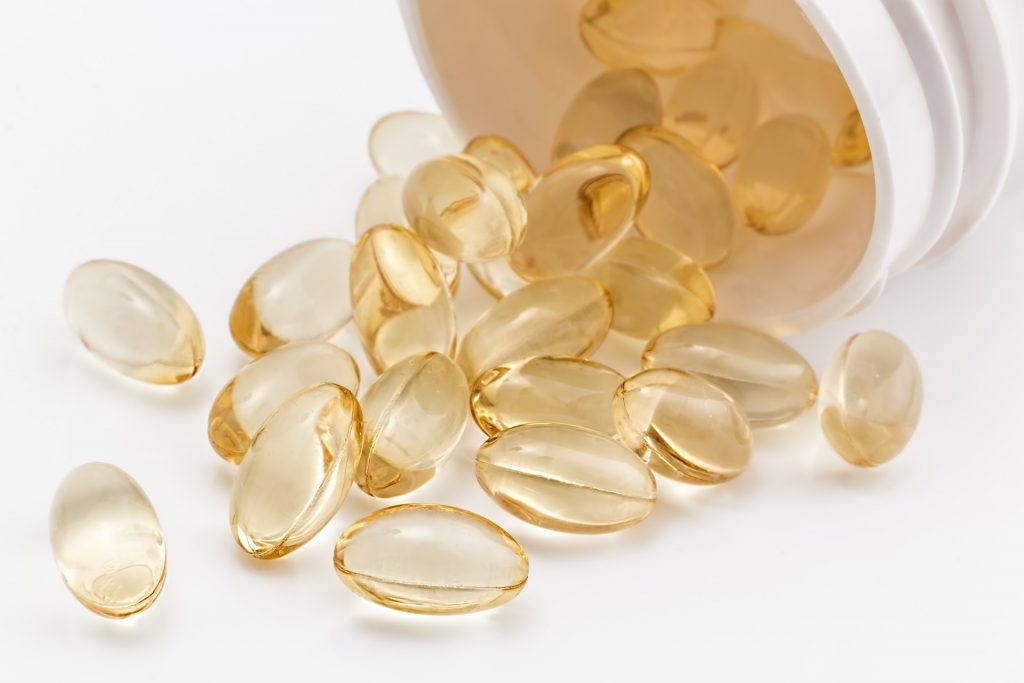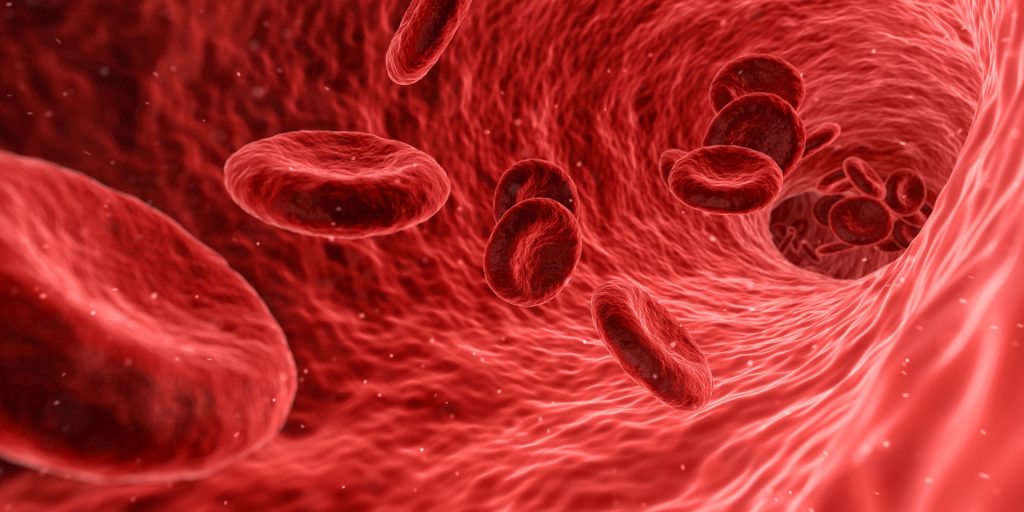Supplements
Prenatal Vitamins and Folic Acid -
Prenatal vitamins are recommended for at least 12 weeks prior to pregnancy, throughout your pregnancy and while breastfeeding. Taking folic acid pre-conceptually and during pregnancy is known to reduce the risk of your baby developing a neural tube defect and other abnormalities as your baby develops.
While prenatal vitamins are an excellent supplement, we encourage our pregnant clients to also follow a folate-rich diet throughout their pregnancy to maximize their protection against neural tube defects.
For clients at low risk of having a baby with a neural tube defect the recommended daily dose is a prenatal vitamin containing 1.0 mg of folic acid.
For clients with risk factors of neural tube defects, such as epilepsy or a family history/medical history/partner’s history of NTD’s, it is recommended by the Society of Obstetrics and Gynaecology to take a daily dose of a prenatal vitamin with an extra supplement of folic acid equating to 4.0 mg.

Probiotics -
Probiotics are live bacteria and yeasts that are good for your health, especially your digestive system, immune system and other crucial aspects of your health. Probiotics are often referred to as “good healthy bacteria” because they help keep your gut healthy. Probiotics are naturally found in your body, and can be also found naturally in foods like yoghurt or kefir. Supplements are beneficial throughout your pregnancy and while you breastfeed and are even beneficial to your baby.
During pregnancy, the composition and balance of microbes in the gut, also called the gut microbiota, play an important role in maintaining metabolism and immune health and contributes to a healthy gut ecology in your baby, especially for babies born vaginally and breast fed. There have been many studies on the use of probiotics not only to assist in a healthy gut, but also to study the impact probiotics have on reducing the risks of Group B Streptococcus (GBS) prior to delivery. GBS can be harmful to your baby if acquired during delivery, causing serious infections such as meningitis, pneumonia and sepsis, which can all lead to death. Around 10-30% of pregnant people are “colonized” with or carry GBS in their intestines, which migrates down to the rectum, vagina and urinary tract. Your midwife will discuss testing for GBS around 35-37 weeks of your pregnancy. Ongoing trials continue on further reducing GBS using probiotic use, estimated to be completed in 2019.
Two published randomized control trials of pregnant people exposed to probiotics, commencing in the first trimester until the end of exclusive breastfeeding, examined pregnancy outcomes. Those taking probiotics had statistically significant lower risk of increase birth weight and birth length. The Journal of Maternal-Fetal and Neonatal Medicine (2013), also showed they significantly reduced the occurrence of gestational diabetes, lowered fasting glucose, decreased pre-eclampsia risk and lowered unhealthy weight gain. The results many occur because probiotics help the body to assimilate nutrients, convert food into energy and manage factors like insulin resistance.

Other benefits of taking probiotics during your pregnancy include, reducing the rate of eczema according to a meta-analysis published by “Epidemiology” in 2012 as well as alleviating symptoms of Irritable Bowel Syndrome (IBS), inflammatory bowel disease (IBD) and infectious diarrhea (caused by viruses, bacteria, or parasites).
If you decide not to take probiotics during your pregnancy, we recommend a course of probiotics following antibiotic therapy, to restore your gut flora “good bacteria” and help prevent an overgrowth of candida, known as yeast infections. It is known that probiotics are able to significantly reduce the incidence of AAD (Antibiotic Associated Diarrhea).
The infant gut is basically sterile until it is colonized with bacteria found in the birth canal and the breast milk. Breast-fed infants of parents who supplemented during pregnancy and following birth also had lower rates of diarrhea, colic and constipation between the ages of 2-6 months.
Side Effects -
Clients usually complain of gas, bloating or skin eruptions after the commencement of probiotics which is typically a sign that the healthy microbes are recolonizing the gut, so it’s nothing to worry about.
Flora Baby -
Flora Baby is a probiotic safe to give babies following birth. It can be mixed into a little expressed breastmilk or formula and given to your baby by syringe or bottle (depending on your method of feeding). You may find the Biogaia probiotic drops are a little easier to administer and can be purchased at any pharmacy. The neonatal intensive care unit at London Sciences Health Centre, routinely uses flora baby probiotic supplements on their compromised or preterm infants to assist with maintaining a good gut bacteria and further preventing health complications associated with the gut. So far there has been a significant improvement in their successes of reducing necrotizing enterocolitis – a deadly intestinal infection.
Vitamin D for Baby and You -
Vitamin D supplements are recommended by Health Canada for all pregnant women and babies to ensure healthy growth & development. Infants living in Canada are at greater risk of vitamin D deficiency.
Vitamin D deficiency has been linked to many health concerns, such as osteoporosis, asthma, diabetes, and autoimmune diseases, like inflammatory bowel disease. The sun can provide some vitamin D exposure, but due to the use of sunscreen, skin pigmentation, clothing, etc, relying on this exposure may not be enough.
Recommendations for you -
Low vitamin D levels during pregnancy has been linked to lower bone density of older children increasing the risk of severe autoimmune diseases and the susceptibility to Type 1 diabetes. Health Canada currently recommends 600IU or international units of vitamin D supplementation daily for all pregnant and lactating women. Prenatal vitamins are usually contain 400-600IU of vitamin D.

Recommendations for Breastfed Infants -

Health Canada currently recommends a vitamin D supplement of 400 IU per day for all infants that are receiving breastmilk. Generally, the vitamin D content of breastmilk is insufficient. This supplement should continue until two years of age; when the diet typically includes sufficient amounts of vitamin D from other sources. Babies who are deficient in vitamin D are at risk of getting rickets, a disease that affects the way the bones grow and develop. Infants with rickets are slow to develop and have muscle spasms, it can cause bowed legs, an enlarged skull and abnormal curves in the spine.
Recommendations for Formula Fed Infants -
Nutrition for Healthy Term Infants does not recommend routine vitamin D supplementation for formula fed infants because all commercial infant formulas are fortified with vitamin D. As long as an infant is drinking a sufficient quantity, ~ 1 L of formula in 24 hours, then a vitamin D supplement is likely not needed. However, many infants, especially young infants, do not consume sufficient quantities of formula to meet their vitamin D requirements until they are older. Parents may want to consider supplementing their baby with 400IU of vitamin D per day, as formula along with supplementation at an early stage will likely not exceed the tolerable upper intake level of 1000 IU vitamin D daily for infants zero to six months and 1500 IU for infants six to 12 months.

Omega 3
Omega-3 fatty acids support the growth of your baby’s brain and tissues. It can be found in fish, which also contains other essential nutrients like vitamin D, zinc, iron, selenium, iodine, magnesium, and copper. Some studies have suggested that regular consumption of fish will help your baby’s growing nervous system.
There are three types of omega-3 fatty acids in food:
- alpha-linolenic acid (ALA)
- docosahexaenoic acid (DHA), and
- eicosapentaenoic acid (EPA)
ALA is found in some vegetable oils (for example, canola oil, soybean oil, flax oil and walnut oil), walnuts and flax seeds.
DHA and EPA, are only found naturally in fish and other seafood with the best sources found in salmon, herring or trout.
Health Canada recommends you eat at least 5 ounces (150 grams) of cooked fish every week. You can also get EPA and DHA omega-3 fatty acids from eggs, fish oil supplements and EPA and DHA-enriched foods.
The healthiest way to cook fish includes grilling, poaching, broiling or baking. If you don’t enjoy the taste, you can try adding spices, cook in lemon juice or mix with low in sugar sauces/condiments.

Examples of fish with low levels of mercury:
- salmon
- trout
- herring
- pollock (Boston bluefish)
- sole
- flounder
- anchovy
- char
- hake
- mullet
- smelt
- Atlantic mackerel
- lake white fish
If you do not eat fish, there are other sources of omega-3 fatty acid. For example, chicken eggs enriched with EPA and DHA can be a source of some omega-3 fatty acid.
If you take fish oil supplements, make sure they have a Natural Product Number (NPN) on the package. These products are safe for pregnant women. Canada has specific standards for all natural health products, including fish oil supplements. A NPN number means the product was tested for heavy metals, pesticides and toxins.
Do not take cod liver oil along with a multivitamin supplement. There is a risk you could have unsafe levels of vitamin A. The daily maximum of vitamin A is 3,000 micrograms retinol activity equivalent (RAE) or 10,000 international units (IU).
Iron -
You need iron to make hemoglobin, a part of red blood cells that carries oxygen throughout the body. When you have iron deficiency anemia, you don’t have enough iron to make hemoglobin, so your body starts to make smaller and fewer red blood cells. Less hemoglobin and fewer red blood cells also means your cells can’t get the oxygen they need.
Pregnancy causes many changes in the body. One of the changes that happens in pregnancy is that the amount of blood in your body almost doubles. Blood is made up of red blood cells, white blood cells and fluid called plasma. The number of red blood cells doesn’t increase as much as the plasma. This process is called “hemodilution” because the blood cells get diluted when the plasma increases. Hemodilution is a healthy response to pregnancy and a common cause of anemia. If your iron is low at the start of your pregnancy, this normal process of hemodilution can lead to anemia.

Signs of anemia:
Some of the symptoms of anemia are common for anyone who is pregnant or who has just given birth (like feeling more out of breath or more tired than normal), so it can be hard to tell if you have anemia. It’s a good idea to talk to your midwife if you are:
- feeling weak and/or getting tired more easily
- feeling dizzy or faint
- feeling especially grumpy or cranky
- having headaches
- having trouble focusing or concentrating
For someone who is anemic, exercising can also leave you feeling like your heart is beating faster than normal (palpitations). You may also notice that you look pale for your skin tone.
How will I know if I'm anemic?
Your midwife will check your hemoglobin levels at the beginning of your pregnancy and again at around 28 weeks of pregnancy. If your midwife has concerns about anemia before or after you have your baby, another blood test may be taken to check on your levels.
If you are diagnosed with anemia in pregnancy, your midwife will discuss iron supplements and food sources to boost your levels prior to having your baby. It is important that you have good iron stores during birth, as most clients will experience normal levels of bleeding afterwards. If you experience more than the normal amount of bleeding, known as postpartum haemorrhage, your iron stores will be depleted and clients complain of feeling extreme exhaustion until their levels return to normal. Some clients even require a blood transfusion to make them feel better. So we prefer and plan to start your labour with a good amount of iron!!
Here is an in-depth guide on iron deficiency anemia published by the Association of Ontario Midwives:

Calcium -

An article in Germany studied calcium supplementation in pregnancy in 2007, and concluded that calcium supplementation in pregnancy lowered the risk of pregnancy induced hypertension (raised blood pressure) and low birth weight babies at term (under 2500 grams after 37 weeks). They recommended supplementation with calcium only if a pregnant person’s intake was less than 1000mg per day.
15 randomized controlled trials (2012) showed evidence that calcium supplementation reduced the risk of pre-eclampsia (raised blood pressure disorder in pregnancy) by 52% and severe pre-eclampsia by 25%. Calcium supplementation was also associated with a significant reduction in pre-term birth.
We recommend a daily intake of 1,200 to 1,400 mg of calcium per day.
Calcium not only ensures your baby’s bones develop well, but many studies have shown it also reduces your risk of pre-eclampsia (raised blood pressure), preterm labour and small for birthweight baby (less than 2500 grams at term). Calcium consumption is also essential when pregnant and lactating as it replenishes your own stores of calcium depleted during this time.
There are many options and ways to nutritionally include calcium into your diet such as:
- Cheese
- Milk and milk alternatives
- Yogurt
- Green leafy vegetables such as spinach, kale, collard greens, okra, cabbage and broccoli, bok choy,
- Green soybeans,
- Nuts and seeds,
- Tofu,
- Bread and anything made with fortified flour,
- Fish – sardines and pilchards (containing bones), salmon and shrimp,
- Dried figs,
- Red beans, white beans and chickpeas,
- Fortified orange juice
